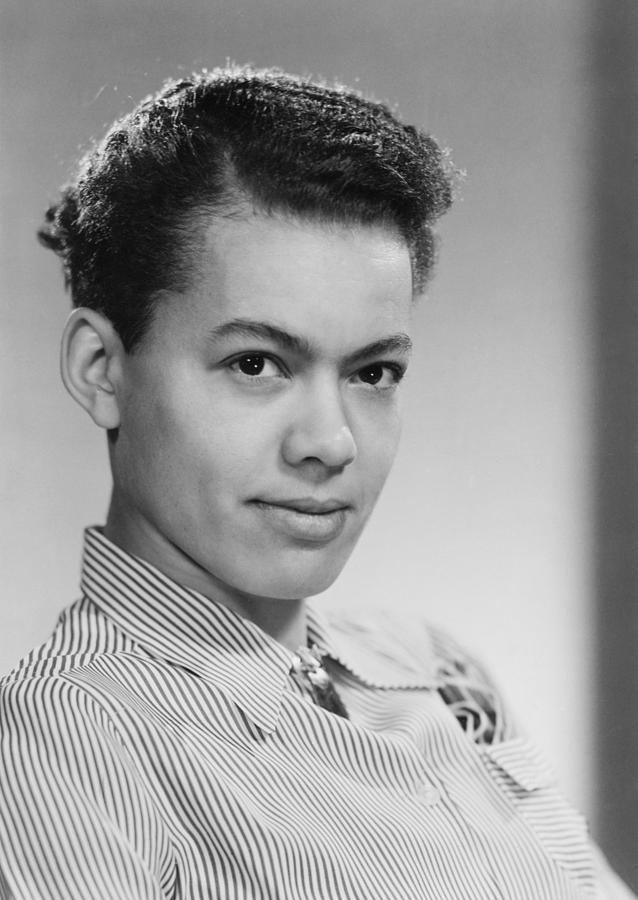“In not a single one of these little campaigns was I victorious. In other words, in each case, I personally failed, but I have lived to see the thesis upon which I was operating vindicated. And what I very often say is that I’ve lived to see my lost causes found.” ― Pauli Murray
Pauli Murray. You ever heard of her? Let me tell you about her. It’s 2020.
From the gate, there was always suffering for her to overcome. Anna Pauline “Pauli” Murray (1910–1985) was raised by her maternal grandparents in Durham, North Carolina. She was such a stand out- intellectually but in other ways too. Pauli identified as mixed race, in issues related to her sexual and gender identity, she described herself as having an “inverted sex instinct”. In her younger years, she occasionally had passed as a teenage boy. A 2017 biographer retroactively classified her as transgender.
Like a force of nature, at 16, she moved to New York City to attend Hunter College, and graduated with a Bachelor of Arts degree in English in 1933. Normal, in that time for sure, right? Then in 1940, Murray sat in the whites-only section of a Virginia bus and was arrested for violating state segregation laws. That’s right, folks. Way early in the movement.
After that, law school at Howard University, because, well.. why not? In her writings there she coined “Jane Crow”, alluding to the Jim Crow laws that enforced racial segregation in the Southern United States- but also the sexism she encountered. Murray graduated first in her class, but she was denied the chance to do post-graduate work at Harvard University because of her gender!
While she is slaying all forms of adversity, she goes to California to get a master’s degree in law at University of California, Berkeley, and in 1965 she became the first African American to receive a Doctor of Juridical Science degree from Yale Law School.
Ok, so she was smart. Well, she is really the storied shadow-glue in many landmarks of change you might be familiar with. As a lawyer, Murray took civil rights and women’s rights cases. Thurgood Marshall called Murray’s 1950 book, States’ Laws on Race and Color, the “bible” of the civil rights movement. Murray served on the 1961–1963 Presidential Commission on the Status of Women, being appointed by John F. Kennedy. In 1966 she was a co-founder of the National Organization for Women. Ruth Bader Ginsburg named Murray as a coauthor of a brief on the 1971 case Reed v. Reed, in recognition of her pioneering work on gender discrimination. This case articulated the “failure of the courts to recognize sex discrimination for what it is and its common features with other types of arbitrary discrimination.”
Somehow, in all this, she felt God, and believed in herself for still another chapter of trailblazing. A call she knew she had- to lead others spiritually. She became an ordained priest in 1977, among the first generation of women priests, and the first ordained African- American woman in the Episcopal Church. Yea.
I got word that the Pauli Murray Center is opening in 2020 to the public. This was encouraging news for me- in this new year, let people learn of a legacy that knew no bounds, in advocacy and spirituality. So if you are in the area of Durham, NC, stop by. Whether or not you do, I hope there is time in your daily practice of hope and quiet to remember Pauli Murray. And share the inspiring, untold, basically unrecognized, incredible person that she was.
Murray published two autobiographies, but she was a poet through and through. Her volume of poetry, Dark Testament, was republished in 2018. Go find them. I’ll leave you with a poem of Pauli’s.
PROPHECY
I sing of a new American
Separate from all others,
Yet enlarged and diminished by all others.
I am the child of kings and serfs, freemen and slaves,
Having neither superiors nor inferiors,
Progeny of all colors, all cultures, all systems, all beliefs.
I have been enslaved, yet my spirit is unbound.
I have been cast aside, but I sparkle in the darkness.
I have been slain but live on in the river of history.
I seek no conquest, no wealth, no power, no revenge:
I seek only discovery
Of the illimitable heights and depths of my own being.
Cambridge, 1969









Read 0 comments and reply